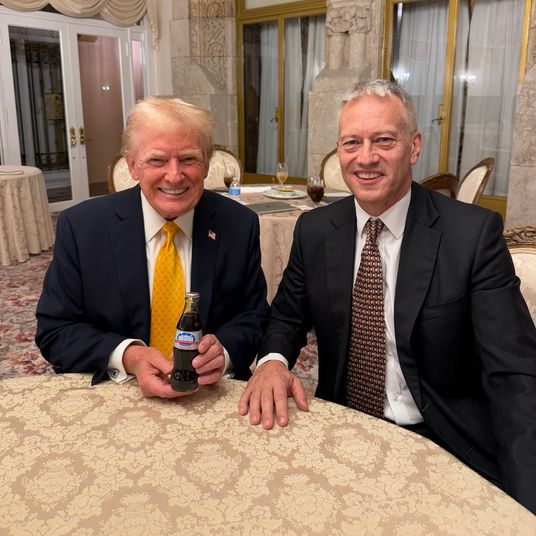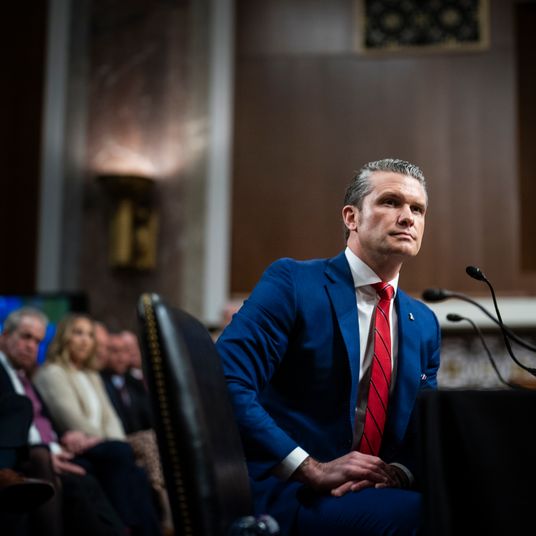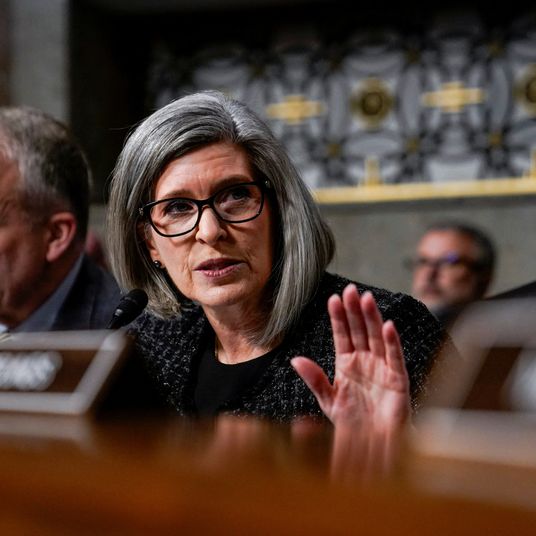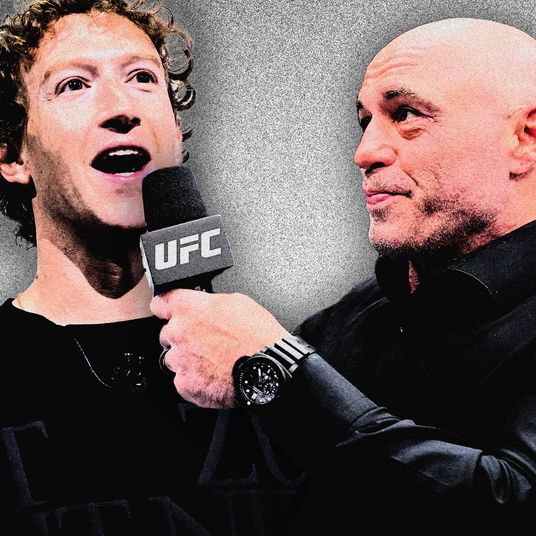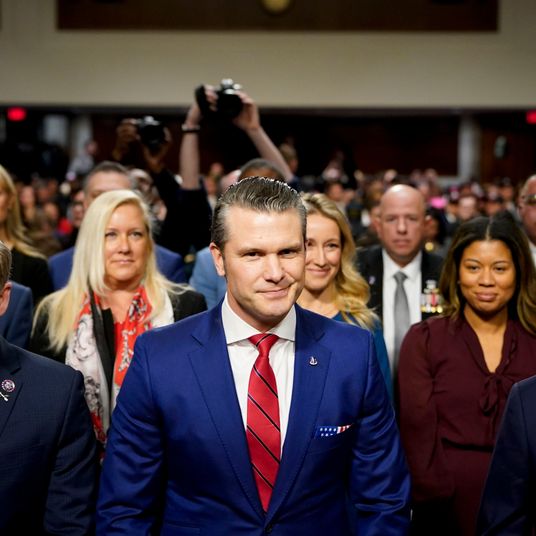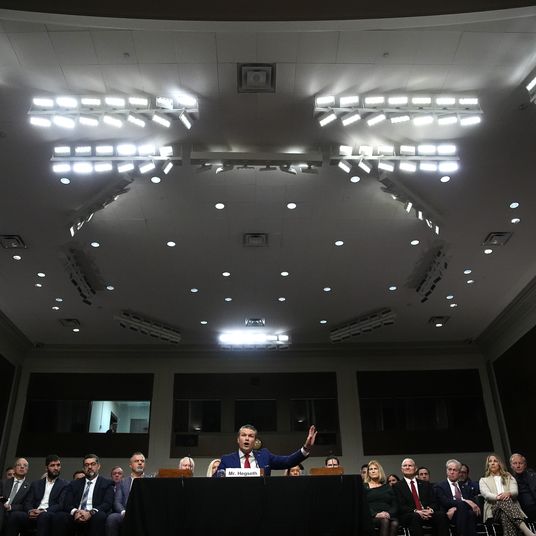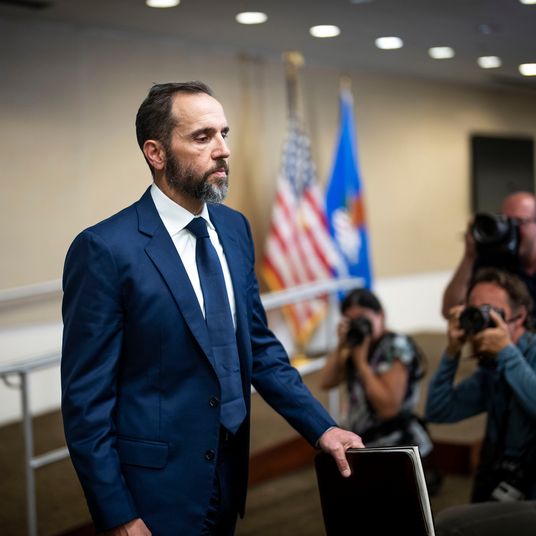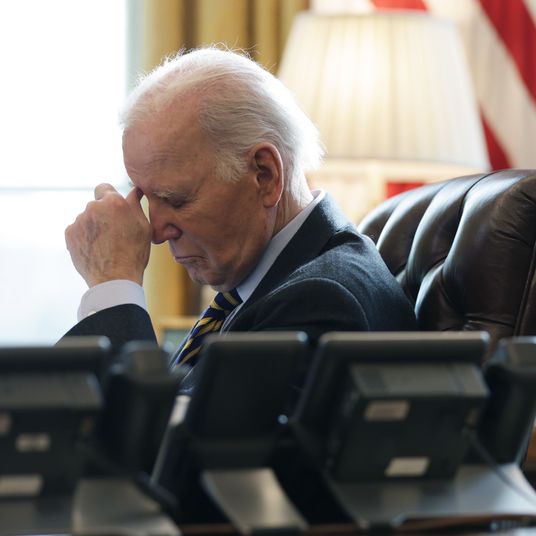
We, along with some others, were a little creeped out by the news today that former MSNBC executive Dan Abrams and former Huffington Post media columnist Rachel Sklar have teamed up to create a coalition of journalists who will “weigh in on how media outlets would likely respond to different PR strategies” for various businesses. “Working journalists are in a unique position to understand what will appeal to other working journalists,” one of their new clients enthused to the Journal, which also dropped “an oil company” as an example of a potential client. Yipes, we thought. We know media people need work right now, and that in a way it could be cool for them, as inherently they love nothing more than offering opinions on things. In lots of ways it is kind of genius.
But still. Isn’t this kind of the dark side? Doesn’t working on public-relations strategies in any capacity break the ever-so-thin membrane that binds all journalists together — if we have nothing else, are we not united in our contempt of flacks?* And now some journalists — no, not some, “thousands,” Abrams told the Journal, are going and telling them how we think? It will be like Cold War Russia all over again! Everyone will work both sides and no one will give out any real information! More important, it seemed ethically murky. Abrams’s explanation to the Journal that they’ll avoid conflicts by placing journalists with different areas of expertise with different companies was kind of vague. People change beats all the time — the reporter covering the election one week could be covering Broadway the next — and general-interest writers and editors change their focus constantly. But in the spirit of fairness, we asked Sklar and Abrams to talk us down. Their responses are after the jump.
Abrams: “First and foremost there are thousands and thousands of folks in ‘media’ around the world who are not involved in the news business. Why shouldn’t someone be able to consult on the possible acquisition of a European cable channel unless he or she has a specific or direct conflict on this matter? Why shouldn’t a blogger be able to consult about building a blog? Take a look at the examples on our Website. Of the four, I can’t imagine that there are concerns with 2–4 (German sports-media advice on branding, video-game bloggers, and a fashion corporate communication expert). The first example is the scenario many appear to be envisioning — a Fortune 500 business seeking advice from the financial media. Let’s even be more specific. Let’s say the business wants advice on how to get better coverage from Forbes. First, let me tell you who would not be part of that panel. It would not include any current full-time reporters from Forbes. Period. But take a look at one of the people on my board, Judy Dobrzynski, formerly the editor of the New York Times “Sunday Business.” Why shouldn’t she be able to offer up advice on the financial media? She and other smart, experienced professionals like her do it every day. Or how about a CNBC analyst who works at a private firm and dabbles in media as an outside analyst — why shouldn’t she be able to offer advice and counsel about dealing with the media? Or someone who used to be at Forbes and is now writing a book? The first line of our employment agreement with media folks who become part of the network is as follows: ‘Prior to joining … you must review every employment, consulting, and other agreement to which you are a party, all employee manuals, codes of conduct, and other policies by which you are bound to ensure that you are fully able to participate … you may only join ARN and qualify as a Network member if you are permitted to do so.’ We will enforce it. Even the appearance of conflict isn’t just bad for journalism, it’s bad for business.
I think many people are debating this in the abstract rather than going to the Website and actually evaluating what we do. I take journalistic ethics very seriously. Allowing media professionals to get paid for their advice is not a sin nor a conflict per se. Like anything else in life and business, it depends on the circumstances. We intend to ensure that we never put journalists, or our business, in a situation where that line is crossed.”
Sklar: “Journalists are on panels all the time — they are quoted in articles all the time — they sit down for coffee with friends, or friends of friends, to give advice all the time. I give advice to people all the time privately — and I seek it. I also did it publicly for over two years on Eat the Press, in the format of, ‘This is why I think you’re doing it wrong’ (but if ABC News puts Charlie Gibson on Dancing With the Stars, it’s on the house). And I’m just one person. I don’t know what about this idea seems so threatening — what is not to trust about having a conference calls with three twentysomething Tumblr-types to get a grip on social networking? What doesn’t make sense about trying to educate yourself about an area of media before pitching that area of media? No one is talking about passing a cash-stuffed envelope under the table. It’s just about media professionals of all types — the multi-platform Web 1.0 type who could code in his sleep, the former veteran TV producer who gets instantly why this opening sequence works and that one doesn’t, the longtime newspaper editor who actually might have some insights on how to cover news — for a Website! If I have learned anything in my few years of covering this business, it is that it is filled with incredibly smart people with a ton of institutional knowledge. That is useful for people convening conferences, planning start-ups, experimenting with new ways to implement the old models — I think it’s exciting to be able to help maximize how that knowledge is used. Like, if Adam Moss decided he needed a break from magazine editing and retired on his millions, you don’t think he’d be the first person I would try to introduce to a client hoping to launch a magazine? [Ed.: No word on what New York’s editor thinks of this scenario.] The idea here is to provide a service for the media industry — hopefully this will be a hedge against things crashing and burning. Smart people can save you so much time and heartache by seeing ahead to the pitfall you’re about to walk into. I’m telling you, if we did this for dating, New Yorkers would love us.”
So, okay. Maybe it is not as creepy as we thought. Maybe in some ways we need an organization like this, if only so that we can stop getting press releases about EXCITING NEW DIGITAL PRODUCTS from William Nikosey at 5W Public Relations and his ilk. But still … we’re not totally convinced. What do you, the people, think? Discuss in the comments.
Ex-MSNBC Chief Taps Journalists as Consultants [WSJ]
A Former Anchor, Dan Abrams, to Form a Consulting Firm [NYT]
* Except for the nice ones. And ones we are dating.






